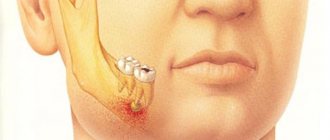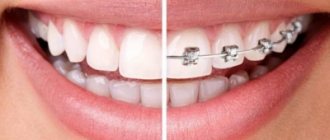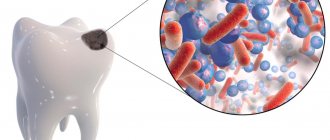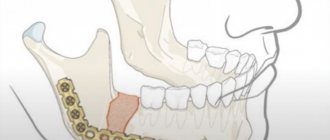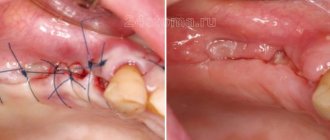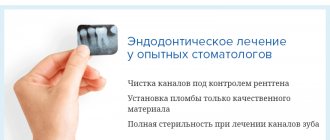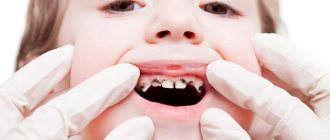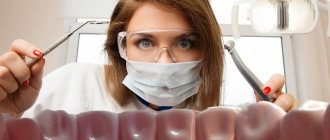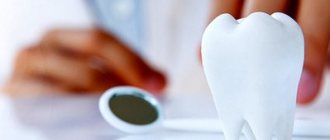In what cases is it impossible to go to dentistry?
The problem with visiting specialized medical institutions arises for people suffering from serious diseases of the musculoskeletal system. Bedridden patients and disabled people of group 1 are not able to visit the dental office for obvious reasons.
To seek help at home, you need to have good reason, or better yet, documented evidence. That is, you should prepare in advance documents confirming group 1 disability or a certificate from the attending physician about the patient’s condition.
Dental care at home, including services for preferential dentures, for disabled people with severe disabilities is provided by dentists, dental therapists, and orthopedic dentists in the scope of the list of services approved by orders of the Moscow Department of Health dated July 7, 2009 No. 783 " On improving the provision of dental care to disabled people with severe disabilities”, dated 08.08.2017 No. 558 “On approval of the Price Guide for orthopedic dental services provided by medical organizations subordinate to the Moscow Department of Health to certain categories of citizens at the expense of the Moscow city budget.”
Consultations are provided at home, caries and pulpitis are treated with the subsequent placement of a filling, measures are taken to relieve acute pain during exacerbation of periodontitis, pathological periodontal pockets are treated, dental plaque is removed, repair services and production of certain types of removable dentures are provided. Performing surgical procedures in the context of providing dental care at home is not provided for by regulatory documents.
Home calls are serviced at addresses included in the service area of the institution.
The patient must have a conclusion from a local physician regarding the possibility of performing dental treatment at home, issued by the medical organization at the patient’s place of residence.
Calling a specialist doctor to your home is carried out by telephone at the institution’s reception desk.
Reception of calls and visits by medical workers at the patient’s home is provided during the opening hours of the institution from Monday to Friday.
The organization of medical care at home in a planned form is carried out in accordance with the priority established on the basis of entering data into the “Book of recording doctors' calls to the house”, but does not exceed 10 calendar days. The patient is informed about the date and time of the visit to the specialist doctor.
House calls due to emergencies are processed on the day of receipt as quickly as possible.
A repeat appointment is scheduled by a medical specialist; the time and date of the appointment is agreed upon with the patient.
If it is impossible to provide dental care at home, the patient is given a referral for hospitalization in a hospital according to the established procedure, or if a condition is detected in the patient that requires urgent or emergency medical care, the performer of the home visit organizes a call to the SSiNMP team named after. A.S. Puchkova.
Dental treatment at home (in hospital)
In connection with the current sanitary and epidemiological situation in city dental clinics to provide emergency dental medical care at home to certain categories of citizens (persons sick with coronavirus infection COVID-19, or contacts of a patient with COVID-19, who are in isolation upon return due to border, patients who have had pneumonia, within 14 days from the moment of discharge from the hospital), mobile dental teams (hereinafter referred to as VSB), including children's, were created, consisting of a dental therapist, a dental surgeon and a nurse. VSB are located on the basis of the State Budgetary Healthcare Institution “Maxillofacial Hospital for War Veterans of the Department of Health”.
Teams are on call 24 hours a day
by phone: 8-499-842-41-12.
Departure of teams from 08:00 to 20:00 from Monday to Sunday.
The task of the teams is to treat acute toothache and other emergency and urgent dental conditions associated with acute toothache, dental injuries, application and removal of previously applied sutures, tooth extraction, and primary treatment of stomatitis.
The teams are equipped with portable dental equipment, personal protective equipment, medical equipment, and ambulance vehicles. The team's visit is free of charge for patients as part of the compulsory health insurance program. The patient must present a compulsory health insurance policy and an identification document (passport, birth certificate).
Types of interventions provided by mobile teams: opening of the tooth cavity with medicinal treatment; extirpation, removal of tooth pulp decay; application of devitalizing paste; applying a temporary filling; removal of fillings, crown trephination; opening of periodontal abscess; removal of a permanent tooth, simple and complex, including using a drill; opening of a soft tissue abscess in the oral cavity; opening of the subperiosteal abscess (washing, drainage); treatment of alveolitis with socket curettage; excision of the hood; applying and removing sutures; mechanical and drug stoppage of bleeding; anesthesia; reduction of dislocation of the temporomandibular joint; treatment of acute forms of stomatitis.
Where to go to call a dentist
It all depends on your financial capabilities. We can safely assume that a doctor from a paid dentistry will have better equipment and the service itself will be at the proper level. But families with disabilities rarely have the funds for expensive treatment, so their direct route is to free city dentistry. An important point: it is better if you decide in advance what to do with the diseased tooth: remove or treat. It is clear that sometimes it is difficult to decide, so if you are not sure, call for treatment. Well, if there are no other options, then you will need a surgeon. All this must be brought to the attention of the receptionist when you place the call.
Free dental clinics have a schedule of home visits. So if you say you need treatment, you may be scheduled for a day next week. Another thing is that if you receive a call for acute pain, the doctor will arrive on the same day.
Dental offices for disabled people
In Moscow there is a medical center that provides assistance to all disabled people (visually impaired and hearing impaired, wheelchair users and people with supports) in the clinic. Dentists trained in America work here. They also did their internship there. This experience allows them to successfully treat every citizen with limited mobility and provide an individual approach to each patient.
This clinic offers fifteen percent discounts for citizens of the first and second groups. The dentistry is equipped with all necessary equipment. The interior of the offices creates a comfortable environment. The layout of the clinic allows all citizens with limited mobility, even wheelchair users, to easily move around the premises.
The nuances of calling a dentist to a disabled person’s home
Prepare for possible difficulties. Put yourself in the position of a doctor - it is very difficult to work in conditions where the patient is not in the dental chair, and with a portable instrument. In addition, in such conditions it is impossible to take an x-ray of the diseased tooth and you will have to treat or remove it, as they say, at random.
Therefore, prepare for the dentist’s arrival. Look for additional lamps and arrange good lighting in the room, prepare a chair for the doctor, and, just in case, a bowl and a towel. Check with the reception desk in advance to see if you may need to buy painkillers and a syringe of the appropriate size for anesthesia. Understand that it is difficult to expect perfect results under these conditions, so be patient and polite. The doctor will appreciate all this, and it will be easier for him to work in a friendly environment.
Have you had any experience of calling a dentist to your home? If yes, write about it in the comments, our readers will be very grateful to you!
Dental treatment for disabled children
Children with disabilities are twice as likely to suffer from dental diseases.
Voting for disabled people at home
The following factors contribute to this:
- impaired functioning of the oral muscles;
- congenital anomalies and genetic susceptibility;
- poor nutrition;
- long-term use of medications.
Dentists at dental clinics are very attentive to young patients.
The doctor gets to know the child in a humorous or playful way. This supports children and eliminates fear throughout the procedure.
Why is it better to carry out the procedure not at home, but in a clinic?
Not all dental surgeries can be performed at home. If there are cysts on the roots of a tooth, it must be removed in parts; the patient takes medications that reduce blood pressure or thin the blood; in all these cases, it is safer to remove it not at home, but in the clinic. Dentistry is equipped with an X-ray machine for more accurate diagnosis, you can choose the most suitable anesthesia, constantly monitor the patient’s condition, and also take emergency measures if something goes wrong.
Reviews of removal at the clinic confirm that this option is much more reliable and safer. Tooth extraction at home is carried out only if it is impossible or extremely difficult for the patient to be taken to a specialist.
Publication date: 15-10-2019
Who can receive dental services at home?
For many disabled and elderly people, the ability to invite a dentist to work at home is the only possible option to receive the necessary medical care. Today, orthopedists have at their disposal all the technological capabilities that allow them to carry out individual procedures outside the walls of the clinic.
However, such services can be useful not only for people who are elderly or disabled, but also for patients experiencing temporary mobility difficulties. Thus, dentists make home visits, including in the following cases:
- for broken limbs,
- exacerbations of serious chronic diseases, such as arthritis or arthrosis,
- recently suffered strokes and heart attacks, etc.
Dentists can go to your home if your limbs are broken.
You need to understand that prosthetics at home is a last resort measure, used only in situations where it is really necessary. Be that as it may, outside the dental clinic, the doctor is limited in his capabilities, since he does not have access to professional office equipment. If you have such a need and a good reason to take advantage, find competent honey. institutions can be found on the Internet.
1Lebedenko, I.Yu. Functional and instrumental research methods in orthopedic dentistry, 2003.

